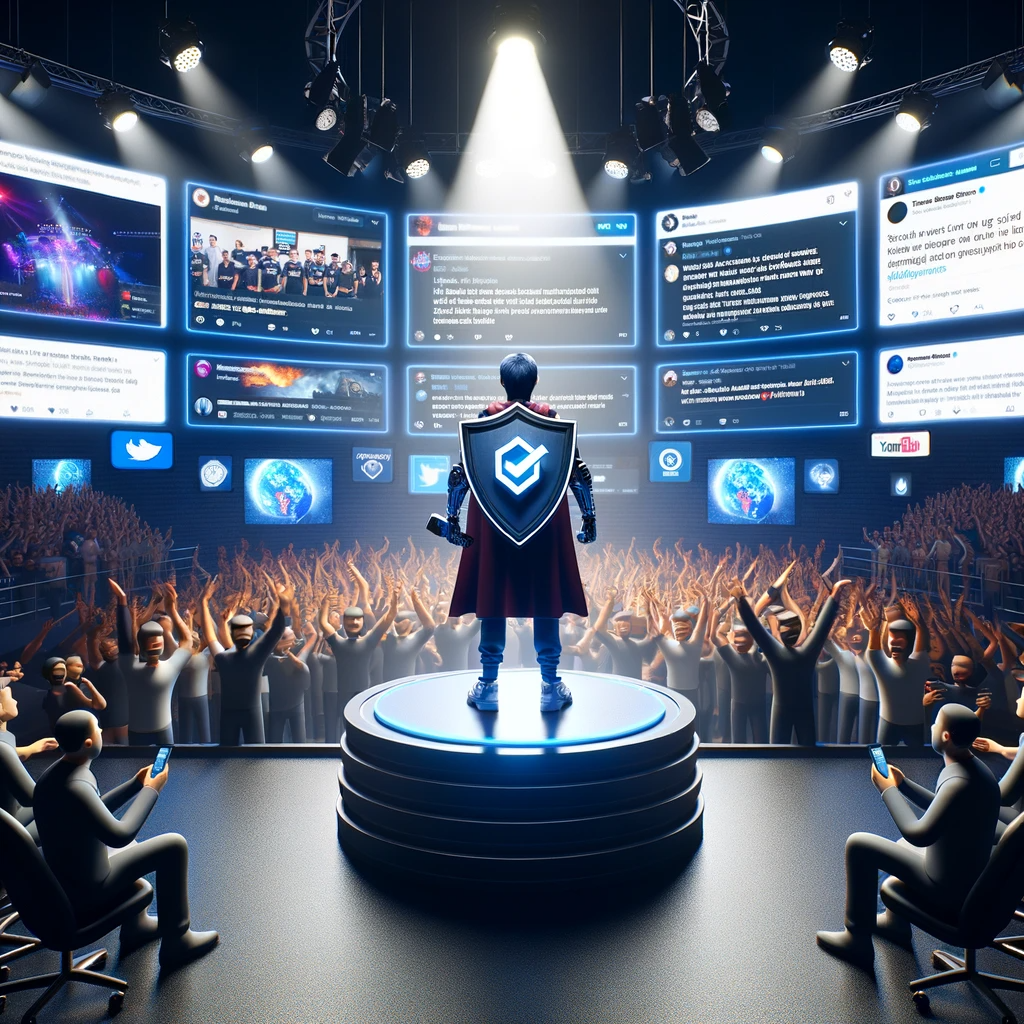
The Ultimate Players Guide: Preparing To Go Pro In Esports
Many players seek to go pro in esports, however many don’t know the steps to get there. From the thrill of the game to the allure of the spotlight, the journey in the world of esports is both exhilarating and challenging. With its rapid rise in popularity and its projected revenue generation of $1.79 billion by 2022, esports is no longer just a pastime but a lucrative career choice for many. However, like any profession, it demands dedication, strategy, and a deep understanding of its intricacies. This comprehensive guide delves into the various facets of the esports world, offering insights, strategies, and tips for both budding gamers and seasoned pros.
Building a Solid Foundation in Esports
Esports has risen from the fringes of niche gaming communities to the forefront of mainstream entertainment. With billions of dollars in revenue and millions of enthusiasts worldwide, esports presents immense opportunities. If you want to go pro in esports, there are many ways to get there. Building a solid foundation in this domain is crucial for long-term success. Let’s delve into the key steps and support them with relevant examples.
- Understanding the Landscape
- Example: Just as traditional sports have diverse games – from basketball to tennis – esports has its array of games. League of Legends, Dota 2, and Counter-Strike: Global Offensive are just a few of the popular titles. By comprehending the breadth of games and their respective communities, one can identify where to focus.
- Choosing the Right Game
- Example: Cloud9, a renowned esports organization, initially found its fame and success in the League of Legends scene. They recognized the game’s potential early on and invested in building a competitive team. Their choice was strategic, ensuring they built a foundation in a game with a growing and passionate community.
- Building a Team
- Example: Team Liquid, another major player in the esports scene, is known for its meticulous approach to team-building. They scout for talent worldwide, ensuring a mix of seasoned professionals and budding stars. Their success in various tournaments attests to the importance of a balanced and cohesive team.
- Investing in Infrastructure
- Example: T1, primarily known for its dominance in League of Legends, built a state-of-the-art training facility in South Korea. This establishment not only offers top-tier training equipment but also focuses on the holistic well-being of its players, including physical fitness and mental health.
- Engaging with the Community
- Example: 100 Thieves, an esports organization founded by former professional player Matthew “Nadeshot” Haag, excels in community engagement. Through content creation, merchandise, and regular interaction with fans on social media, they’ve built a dedicated fanbase that feels connected to the brand.
- Continuous Learning and Adaptation
- Example: The esports landscape is ever-evolving. Meta changes in games, shifts in player dynamics, or updates in tournament structures require organizations to be adaptable. Fnatic, with its presence in multiple games over the years, has shown resilience by continuously learning and adapting to maintain its top-tier status.
- Diversifying Revenue Streams
- Example: Aside from tournament winnings, successful esports organizations like G2 Esports diversify their revenue through sponsorships, merchandise sales, and content monetization. This financial stability ensures sustainability even in competitive downtimes.
- Ethical Considerations and Fair Play
- Example: Esports has had its share of controversies, from match-fixing to the use of performance-enhancing drugs. Organizations like Astralis have set examples by promoting fair play, transparency, and adherence to rules, ensuring the integrity of the sport remains intact.
In conclusion, building a foundation in esports is akin to constructing a skyscraper. It requires a deep understanding of the landscape, strategic choices, continuous investment, and an unwavering commitment to ethics and community. With the right approach, the skyscraper not only stands tall but becomes an iconic fixture in the cityscape of esports.
Key Points:
1. Select the right game: Consider factors such as personal interest, skill level, and the game’s competitive scene.
2. Invest in quality gaming equipment: High-performance PCs, consoles, peripherals, and a stable internet connection.
3. Develop a consistent practice schedule: Balance between skill development, strategy learning, and rest periods.
4. Understand the game mechanics: Study the game rules, character abilities, map layouts, and game meta.
5. Engage in community forums and social media groups: Learn from experienced players, share strategies, and stay updated with game changes.
Improving Gameplay Skills and Strategies
In the dynamic world of gaming, the quest to improve never ends. Whether you’re a casual player or have competitive ambitions to go pro in esports, refining your gameplay skills and strategies is crucial. Esports professionals don’t just happen, it takes hard work to achieve success. Let’s explore some key techniques that can catapult your in-game performance to new heights, backed by compelling examples.
- Analyze Professional Player Gameplay
- Example: During the League of Legends World Championship, thousands of fans tune in for entertainment and learning. By observing professional players like Faker or Doinb, enthusiasts can grasp advanced techniques, from lane control to champion-specific mechanics. Similarly, in FPS games like CS:GO, watching pros can teach you about perfect crosshair placement and timely rotations. At Esports Tower, premium members attend watch parties with their coaches to gain greater insight and even have weekly VOD reviews of their own gameplay.
- Use Training Modes and Tutorials
- Example: Esports Tower offers dedicated training for games like Valorant, Fortnite, Rocket League and Overwatch. These weekly dedicated training POS bring together like-minded players to practice their aiming against moving targets and scrimmage against equally skilled teams. Moreover, many games feature tutorials or challenges that teach essential mechanics. For instance, in Dota 2, the ‘Last Hit Trainer’ helps players perfect the art of securing game-critical last hits on creeps.
- Implement Strategic Gameplay
- Example: Understanding team compositions can make or break a match in games like Valorant or Overwatch. Recognizing the importance of having both breachers and defenders or knowing when to deploy specific operators based on map strategies, can significantly impact outcomes. Similarly, in battle royale games like Fortnite, understanding game phase planning – where to land initially, when to engage, and when to avoid combat – can be the difference between an early exit and a victory royale.
- Review Your Own Gameplay
- Example: Tools like OP.GG for League of Legends allow players to review their match histories, providing detailed statistics on performance. Beyond stats, recording and watching your gameplay can spotlight mistakes or areas of improvement. For instance, in StarCraft II, players often rewatch their matches to understand resource allocation and tactical missteps.
- Participate in Local Tournaments
- Example: Local gaming cafes and community centers often host tournaments for popular titles. By participating, you’re exposed to a competitive environment, helping you adapt to pressure situations. For example, in Super Smash Bros. communities, local ‘Smashfests’ offer players a chance to compete, learn from others, and refine their skills in real-time combat scenarios.
In conclusion, the path to enhancing gameplay skills and strategies is multifaceted. It’s a blend of observation, practice, strategic thinking, self-reflection, and real-world experience. As the age-old adage goes, “Practice makes perfect,” and in the realm of gaming, this couldn’t be truer. So, gear up, dive in, and embark on a journey of continuous improvement!
Key Points:
1. Analyze professional player gameplay: Watch live streams, tournaments, and gameplay videos to learn advanced techniques.
2. Use training modes and tutorials: Practice aiming, movement, and other game-specific skills.
3. Implement strategic gameplay: Learn about team compositions, map strategies, and game phase planning.
4. Review your own gameplay: Identify mistakes, areas for improvement, and track progress over time.
5. Participate in local tournaments: Gain competitive experience and learn to handle pressure.
Building a Professional Esports Profile
In the high-octane world of esports, talent is just one piece of the puzzle. To truly make a mark and garner attention, players must build a comprehensive and professional profile. Let’s deep dive into the key steps every budding esports professional should consider, enriched with examples.
- Create a Compelling Gamer Profile
- Example: Look at the profiles of esports legends like Faker or Ninja. They don’t just list their in-game names. Their profiles showcase a plethora of achievements, from tournament victories to personal gaming milestones. Additionally, they often share their favorite games and a bit about their personal lives, giving fans a holistic view of the player behind the screen.
- Develop an Online Presence
- Example: Pokimane, one of the most recognized faces in the gaming world, started her journey streaming gameplay on Twitch. She diversified her presence by creating engaging content on YouTube, from gameplay videos to vlogs. Furthermore, her active participation on social media platforms like Twitter and Instagram keeps her connected with fans and updates them about her gaming adventures and personal experiences.
- Network with Other Gamers and Industry Professionals
- Example: Attending events like E3 or PAX can be invaluable. Not only do these conventions offer insights into the latest in gaming, but they also provide networking opportunities. Esports pros like s1mple have often emphasized the importance of such events in building connections. Moreover, joining organizations or clans, like Cloud9 or Team Liquid, can also pave the way for collaborations and mentorships.
- Seek Sponsorship Opportunities
- Example: Many esports professionals, such as Shroud or DrLupo, have secured sponsorships from gaming giants like Logitech or Corsair. However, it’s not just the big companies that offer sponsorships. Local businesses keen on tapping into the gaming demographic or online platforms looking for ambassadors can be potential sponsors. Crafting a well-thought-out proposal highlighting your gaming prowess and audience reach can be the key to securing these deals.
- Maintain a Positive Online Reputation
- Example: The esports world is rife with stories of players facing backlash due to unsportsmanlike behavior. On the flip side, players like Geguri, known for her exceptional skills in Overwatch, are also recognized for their positivity and respectful demeanor. Avoiding toxicity, respecting opponents, and displaying good sportsmanship not only enhances one’s reputation but also makes the gaming community a better place.
In conclusion, building a professional esports profile is a blend of showcasing talent, networking, maintaining an active online presence, and upholding a positive image. It’s a journey of passion, dedication, and strategic planning. So, if you’re looking to make waves in the esports arena, start building that profile and let the games begin!
Key Points:
1. Create a compelling gamer profile: Include gaming achievements, favorite games, and a personal bio.
2. Develop an online presence: Stream gameplay on platforms like Twitch, create gaming content on YouTube, and be active on social media.
3. Network with other gamers and industry professionals: Attend gaming conventions, join gaming organizations, and participate in online communities.
4. Seek sponsorship opportunities: Approach gaming companies, local businesses, and online platforms.
5. Maintain a positive online reputation: Show sportsmanship, respect other players, and avoid toxic behavior.
Understanding the Esports Industry
The world of esports is vast, dynamic, and rapidly evolving. With games like Fortnite, Rocket League, Valorant, and Overwatch taking center stage, understanding the esports industry’s multifaceted nature is crucial. Let’s break down the key aspects, using these popular games as illustrative examples.
- Study the Structure of the Esports Industry
- Game Publishers: Epic Games, the developer behind Fortnite, Riot Games for Valorant, Psyonix for Rocket League, and Blizzard Entertainment for Overwatch, are pivotal entities in the esports ecosystem, setting game direction and often overseeing competitive structures.
- Tournament Organizers: While some publishers host their own tournaments, such as Riot Games’ Valorant Champions Tour or Blizzard’s Overwatch League, third-party organizers also play a role, hosting events and regional competitions.
- Team Organizations: Teams like FaZe Clan and Team SoloMid have rosters across multiple games, including Fortnite and Valorant. These organizations scout talent, provide training, and represent players.
- Sponsors: Companies like Intel, Coca-Cola, or even car brands like BMW often sponsor tournaments or teams, seeing the massive potential in esports viewership. For example, Nissan partnered with Rocket League for in-game content.
- Keep Up with Industry Trends
- Staying updated is crucial. Patch updates in Overwatch might change the meta, making certain characters more viable. Similarly, a new season in Fortnite introduces new mechanics and map changes. Websites like Dot Esports or The Esports Observer offer regular news, while game-specific forums and communities are goldmines for in-depth discussions.
- Learn About Player Contracts and Legal Aspects
- Contracts in esports can be intricate. Players in the Overwatch League, for example, have a minimum salary requirement, health insurance, and even retirement plans. It’s vital to understand terms, duration, player obligations, and what rights they retain. Players like Tfue have highlighted the importance of fair contracts, having faced legal battles over contractual disputes.
- Consider the Financial Aspects
- Player earnings aren’t just about salaries. Fortnite‘s World Cup had a staggering $30 million prize pool, making many of its participants instant millionaires. Additionally, players monetize their brand through streaming on platforms like Twitch, sponsorships, and merchandise. For example, popular Valorant streamers can earn significantly through ad revenue, viewer donations, and brand partnerships.
- Explore Career Opportunities Beyond Being a Pro Player
- The esports realm is vast. If one has a strategic mindset, coaching for games like Rocket League might be a path. Game testing is another avenue, ensuring titles like Overwatch remain balanced. Then there’s content creation, where enthusiasts create game guides, commentary, or even cinematic content around Fortnite. Moreover, as the industry grows, so does the demand for roles in esports management, marketing, and event organization.
In wrapping up, the esports industry, as showcased by titles like Fortnite, Rocket League, Valorant, and Overwatch, is a complex and vibrant ecosystem. Whether you’re an aspiring player, a content creator, or an enthusiast, understanding its depth and breadth is the first step in carving a niche in this exciting world.
Key Points:
1. Study the structure of the esports industry: Learn about game publishers, tournament organizers, team organizations, and sponsors.
2. Keep up with industry trends: Follow esports news, game updates, and market reports.
3. Learn about player contracts and legal aspects: Understand terms, player rights, and obligations.
4. Consider the financial aspects: Understand player salaries, tournament prize pools, and potential earnings from sponsorships and streaming.
5. Explore career opportunities beyond being a pro player: Coaching, game testing, content creation, and esports management.
Preparing for Challenges in the Esports Career
The allure of an esports career is undeniable. The roaring crowds, the adrenaline-pumping matches, the taste of victory — it’s a dream for many. However, like any profession, it comes with its unique set of challenges. Being prepared can make the difference between a fleeting moment of fame and a sustainable, fulfilling career. Let’s dive into some key strategies to tackle these challenges head-on.
- Manage Stress and Pressure
- As matches intensify, so does the pressure. Learn coping mechanisms such as meditation or deep-breathing exercises. Physical health plays a significant role in mental well-being. Regular exercise, a balanced diet, and adequate sleep are crucial. The Mayo Clinic offers insights on the profound connection between physical and mental health.
- Balance Gaming with Personal Life
- Immersing oneself in gaming can sometimes lead to neglecting personal relationships and other life aspects. It’s vital to set boundaries. Allocate specific hours for practice, leaving time for family, friends, and self-care. Effective time management techniques can be explored through resources like MindTools.
- Deal with Online Harassment and Toxicity
- The online realm can be brutal. Trolls and toxic players can affect one’s mental health. Learning to ignore or mute such players, reporting abusive behavior, and taking breaks when needed is essential. Organizations like Cybersmile provide support for those facing online harassment.
- Plan for Career Longevity
- An esports career can be short-lived if one doesn’t plan ahead. Diversifying skills, perhaps by delving into game analysis, coaching, or content creation, can ensure sustainability. Additionally, considering formal education or training in related fields can open doors post an active gaming career. Websites like Coursera offer a plethora of courses that can complement an esports journey.
- Stay Motivated and Passionate
- The rigors of professional gaming can sometimes dim the passion. It’s essential to keep the love for gaming alive. Setting personal milestones, celebrating even the smallest of victories, and continually challenging oneself can keep the fire burning. Renowned motivational speaker Tony Robbins often emphasizes the power of passion and purpose in any career.
In conclusion, while the path of esports is filled with challenges, it’s also one of immense potential and rewards. With the right strategies, resilience, and resources, one can not only navigate the hurdles but also truly shine in the electrifying world of esports.
Key Points:
1. Manage stress and pressure: Learn coping mechanisms, relaxation techniques, and maintain a healthy lifestyle.
2. Balance gaming with personal life: Set boundaries, manage time effectively, and maintain social relationships.
3. Deal with online harassment and toxicity: Learn to ignore trolls, report abusive behavior, and maintain mental health.
4. Plan for career longevity: Diversify skills, consider education, and have a backup plan.
5. Stay motivated and passionate: Keep the love for gaming alive, set personal goals, and celebrate small victories.
Enhancing Physical and Mental Fitness for Gaming
In the competitive gaming realm, having a razor-sharp mind paired with peak physical fitness can give players a definitive edge. More than just rapid finger movements and quick reactions, holistic health is pivotal in enhancing gaming prowess. Dive into this guide to optimize your physical and mental fitness for gaming.
- Adopt a Regular Exercise Routine
- Incorporating exercise into your routine can significantly boost physical stamina, which is crucial for those long gaming sessions. Exercises focusing on hand-eye coordination can enhance gameplay precision, while cardiovascular workouts can improve reaction time. According to the American Heart Association, regular physical activity can improve cognitive function, particularly aspects essential for gaming like attention and processing speed.
- Maintain a Balanced Diet
- Just as a high-performance car requires quality fuel, gamers need optimal nutrition for sustained performance. Consuming a balanced diet with the right mix of proteins, fats, and carbohydrates ensures sustained energy levels. As highlighted by the World Health Organization, a nutritious diet can enhance cognitive function and improve concentration, both crucial for gaming.
- Prioritize Sleep
- Adequate rest is non-negotiable. Sleep plays a pivotal role in decision-making and mental clarity. Skimping on sleep can lead to slower reaction times and foggy decision-making. The Sleep Foundation emphasizes the direct link between quality sleep and improved cognitive functions, including attention and speed.
- Practice Mindfulness and Meditation
- In the high-pressure scenarios of competitive gaming, staying centered can make all the difference. Mindfulness practices and meditation can enhance focus, reduce in-game stress, and foster mental resilience. According to the Mayo Clinic, meditation can improve attention span, promote emotional health, and reduce anxiety.
- Regularly Check on Mental Health
- The intense nature of competitive gaming can sometimes take a toll on mental health. Regularly self-assessing and being cognizant of one’s mental state is crucial. Taking breaks, engaging in hobbies outside gaming, and seeking professional help when needed are vital steps. Organizations like Mental Health America provide resources and support for individuals seeking guidance.
In conclusion, gaming is not just about skill; it’s about holistic well-being. By embracing a balanced lifestyle, focusing on physical health, and prioritizing mental wellness, gamers can truly elevate their performance and enjoy a fulfilling, sustainable gaming journey.
Key Points:
1. Adopt a regular exercise routine: Improve physical stamina, hand-eye coordination, and reaction time.
2. Maintain a balanced diet: Fuel the body and mind for optimal gaming performance.
3. Prioritize sleep: Ensure adequate rest for mental clarity and quick decision-making.
4. Practice mindfulness and meditation: Enhance focus, reduce stress, and improve mental resilience.
5. Regularly check on mental health: Seek professional help if needed, and take breaks to avoid burnout.
Building a Supportive Network
Esports, like any other competitive field, can be as demanding as it is rewarding. As you go pro in esports you’ll be pulled in a number of directions. Beyond the flashy tournaments and roaring fans, the journey is paved with challenges, intense training, and constant learning. To navigate this path successfully, building a robust supportive network is crucial. Here’s how esports athletes can cultivate this essential asset:
- Connect with Fellow Gamers
- The gaming community is vast, diverse, and brimming with individuals who share a common passion. By forming friendships with fellow gamers, athletes can share experiences, discuss strategies, and learn from each other’s mistakes and successes. These connections not only enrich the gaming experience but also provide a sense of camaraderie and mutual support.
- Engage Family and Friends
- While esports has seen exponential growth, there’s still a segment of society that might not fully grasp its intricacies. Taking the time to educate family and friends about the world of esports, its potential, and its demands can bridge this gap. By seeking their support and involving them in the journey – be it watching a tournament together or discussing a game strategy – athletes can build a strong, personal support system.
- Find a Mentor or Coach
- Every successful esports athlete has, at some point, benefited from guidance. Finding a mentor or coach can provide invaluable insights, feedback, and direction. They can pinpoint areas of improvement, offer strategies, and provide the necessary motivation and support. A coach’s external perspective can sometimes be the difference between a good player and a great one.
- Join or Form a Team
- Esports, in many of its genres, is a team endeavor. By joining or forming a team, athletes can collaborate, strategize, and grow together. Teams provide a structured environment for practice, learning, and competition. Moreover, being part of a team fosters a sense of belonging, mutual respect, and shared goals, all of which are essential for individual and collective success.
- Participate in Online Gaming Communities
- The digital age has blessed gamers with platforms where they can connect, share, and learn. Websites, forums, and social media groups dedicated to specific games or the broader esports landscape are gold mines of information. Participating in these communities allows athletes to share their knowledge, seek advice, discuss the latest trends, and stay updated on industry news.
In conclusion, while individual skill and talent are undeniable assets in esports, the importance of a supportive network cannot be overstated. By surrounding themselves with like-minded individuals, mentors, teams, family, and friends, esports athletes can ensure they have the backing, guidance, and encouragement to reach the pinnacle of success.
Key Points:
1. Connect with fellow gamers: Form friendships, share experiences, and learn from each other.
2. Engage family and friends: Educate them about esports, seek their support, and involve them in your journey.
3. Find a mentor or coach: Gain guidance feedback, and improve faster. Get an Esports Tower coach and rank up 1-2 levels each month!
4. Join or form a team: Collaborate, strategize, and grow together.
5. Participate in online gaming communities: Share knowledge, get advice, and stay updated.
Navigating the Path to Pro Leagues
The dream of making it to the professional leagues is one shared by many esports enthusiasts. From the tactical shootouts in Valorant to the adrenaline-pumping races in Rocket League, each game offers a unique path to pro status. This guide provides a roadmap for aspiring pros across popular titles like Valorant, Fortnite, Rocket League, NBA2K, Call of Duty, and Overwatch.
- Start with Local and Online Tournaments
- Before aiming for the big leagues, it’s essential to get your feet wet. Participate in local tournaments or online competitions. For instance, Fortnite often hosts online ‘Cups’ allowing players worldwide to compete. Such platforms not only offer valuable experience but can also provide initial exposure and recognition in the gaming community.
- Aim for Higher-level Competitions
- As you build confidence and hone your skills, it’s time to aim higher. Games like Rocket League and NBA2K often have regional and national tournaments that act as stepping stones to international events. For instance, the RLCS (Rocket League Championship Series) starts with regional competitions leading up to the world championship.
- Understand the Selection Process for Pro Leagues
- Each game has its distinct path to the pros. Valorant, for instance, has a tiered competitive scene, with smaller tournaments feeding into larger ones. Overwatch introduced the Overwatch Contenders, a league that acts as a feeder to the Overwatch League. Players can be scouted from these platforms. Titles like NBA2K and Call of Duty have player drafts, while others might have open tryouts. Understanding these processes can give players a clear direction on their journey.
- Showcase Consistency in Performance
- Being a one-hit-wonder won’t cut it in the competitive world of esports. Teams and organizations are on the lookout for players who consistently perform at a high level. In Call of Duty leagues, for instance, adaptability to different maps, game modes, and team strategies is crucial. Demonstrating teamwork, especially in games like Valorant and Overwatch, where team dynamics can make or break a match, is equally vital.
- Be Patient and Persistent
- The path to pro leagues is paved with challenges, setbacks, and intense competition. While Fortnite might unearth a new star in one of its World Cups, another player might grind for years before making it to a professional Overwatch or Call of Duty team. It’s essential to remain patient, keep improving, learn from every game, and seize opportunities when they come.
In wrapping up, the journey to the professional leagues in games like Valorant, Fortnite, Rocket League, NBA2K, Call of Duty, and Overwatch is one of passion, dedication, skill, and strategy. While the path might be challenging, with the right approach, guidance, and perseverance, the dream of joining the ranks of esports elites is attainable. Game on!
Key Points:
1. Start with local and online tournaments: Gain exposure, experience, and recognition.
2. Aim for higher-level competitions: Regional, national, and eventually international tournaments.
3. Understand the selection process for pro leagues: Qualification rounds, player drafts, and tryouts.
4. Showcase consistency in performance: Maintain a high skill level, show adaptability, and demonstrate teamwork.
5. Be patient and persistent: Success may take time, keep improving, and seize opportunities.
Adapting to Life as a Pro Gamer
Stepping into the limelight as a professional gamer is a monumental shift from casual gaming. The roar of the crowd, the glare of the spotlight, and the weight of expectations can be overwhelming. When you go pro in esports, life on the road isn’t as glamorous as it seems. Yet, with the right approach, it’s possible to navigate this new terrain with confidence and grace. Here’s a guide to adapting to life as a pro gamer:
- Manage a New Lifestyle
- The world of professional gaming is not limited to the screen. It often involves traveling globally for tournaments, facing the press in media interviews, and interacting with a growing fanbase. Attending events like E3 or DreamHack might become routine. It’s essential to adjust to this new, fast-paced lifestyle. Staying organized, respecting commitments, and ensuring self-care during travels can help in striking a balance.
- Handle Fame and Public Scrutiny
- With fame comes the magnifying glass of public scrutiny. Every move, tweet, or in-game decision can be analyzed, critiqued, or praised. Maintaining professionalism in all interactions is paramount. It’s also crucial to manage personal privacy, setting boundaries where necessary. Dealing with criticism constructively, discerning genuine feedback from trolling, and avoiding knee-jerk reactions can help in maintaining a positive public image.
- Balance Personal Life and Career
- Amidst the whirlwind of tournaments, practice sessions, and public appearances, personal life can take a backseat. However, it’s vital to manage time effectively to maintain relationships, whether it’s family, friends, or significant others. Allocating specific ‘off’ days, setting aside time for hobbies, and ensuring personal growth outside of gaming can provide a much-needed respite and balance.
- Continual Learning and Improvement
- The gaming world is ever-evolving. New patches, strategies, and meta shifts mean that resting on laurels is not an option. Pro gamers need to stay updated with game changes constantly. This involves practicing regularly, collaborating with teammates to adapt strategies, and even scouting opponents to anticipate their moves. Lifelong learning becomes the cornerstone of a sustained gaming career.
- Plan for Financial Stability
- The influx of prize money, sponsorships, and streaming revenue can be exhilarating. However, it’s essential to have a financial plan in place. Engaging with financial advisors, investing wisely, and saving for the future ensures that the financial health remains robust even beyond the active gaming years. It’s also prudent to explore other revenue streams, be it through merchandise, content creation, or brand collaborations.
In conclusion, life as a pro gamer is as much about strategy off the screen as it is on it. It’s a blend of skill, adaptability, personal growth, and financial acumen. While the challenges are plenty, with the right mindset and approach, they are surmountable, paving the way for a fulfilling and illustrious gaming career.
Key Points:
1. Manage a new lifestyle: Traveling for tournaments, media interviews, and fan interactions.
2. Handle fame and public scrutiny: Maintain professionalism, manage privacy, and deal with criticism.
3. Balance personal life and career: Time management, maintaining relationships, and personal growth.
4. Continual learning and improvement: Stay updated with game changes, improve skills, and adapt strategies.
5. Plan for financial stability: Manage earnings, invest wisely, and plan for future.
Leaving a Legacy in Esports
In the pulsating world of esports, where new stars are born every day, leaving a lasting legacy is a challenging yet rewarding endeavor. It’s not just about the in-game achievements but also the impact one leaves on the community, the game, and the industry at large. Once you go pro in esports, you need to consider what your legacy will mean for the next generation of players. Here’s a guide on how to etch one’s name in the annals of esports history:
- Strive for Excellence
- The foundation of any legacy in esports is unparalleled skill and achievement. Aim to be the best in your game, consistently topping leaderboards and clinching titles. For instance, Faker, often dubbed the “God of League of Legends,” has set numerous records, won multiple championships, and is considered one of the best in the game. By setting records and amassing titles, one can cement their place as a legendary figure in esports.
- Inspire Others
- A true legacy is not just about personal achievements but also about the impact one has on others. Sharing personal journeys, challenges, and triumphs can inspire budding gamers. Mentoring upcoming players, offering tips, and contributing to the gaming community can make a lasting impact. Players like Scump in Call of Duty have shared their experiences and wisdom, guiding the next generation of esports athletes.
- Innovate in the Game
- Leaving a mark often involves doing things differently. By developing new strategies, experimenting with unconventional playstyles, or pioneering character builds, players can influence the meta of a game. For example, in the early days of Overwatch, players and teams that innovated with unique compositions often set the tone for how the game was played at the professional level.
- Contribute to the Growth of Esports
- Being an advocate for the industry can lead to systemic improvements that benefit all. Whether it’s advocating for player rights, promoting esports to a broader audience, or participating in industry discussions, players have the power to shape the future of esports. Figures like Ocelote, once a pro player and now the founder of G2 Esports, have been vocal about industry growth and player welfare.
- Plan for a Post-Pro Career
- The spotlight of a pro gamer might dim with time, but the journey doesn’t have to end there. Many pro gamers transition to roles like coaching, streaming, or even game development. Shroud, for instance, transitioned from a professional Counter-Strike: Global Offensive player to one of the most popular streamers globally. Others, like Hai, a former League of Legends pro, have delved into esports management, ensuring the growth and sustainability of the industry.
In conclusion, leaving a legacy in esports is a multifaceted endeavor. It’s about excellence, innovation, inspiration, advocacy, and evolution. By focusing on these pillars, one can ensure that their legacy in esports resonates for generations to come.
Key Points:
1. Strive for excellence: Aim to be the best in your game, set records, and win championships.
2. Inspire others: Share your journey, mentor upcoming players, and contribute to the gaming community.
3. Innovate in the game: Develop new strategies, playstyles, or character builds.
4. Contribute to the growth of esports: Advocate for player rights, promote esports, and participate in industry discussions.
5. Plan for a post-pro career: Coaching, streaming, game development, or esports management.
Key Fact: Esports is projected to generate $1.79 billion per year by 2022. Details: The esports industry is growing rapidly, with increasing viewership, sponsorships, and investment.
In the ever-evolving realm of esports, one thing remains constant: the dedication and passion of its community. From building a strong foundation to leaving an indelible mark, the journey is filled with challenges and triumphs. Armed with the right knowledge, support, and mindset, any aspiring gamer can navigate this vibrant landscape, achieving both personal and professional milestones. As you embark or continue on this journey, always remember to play with passion, strategize with purpose, and aim for excellence. The world of esports awaits, ready to etch your name in its rich history.

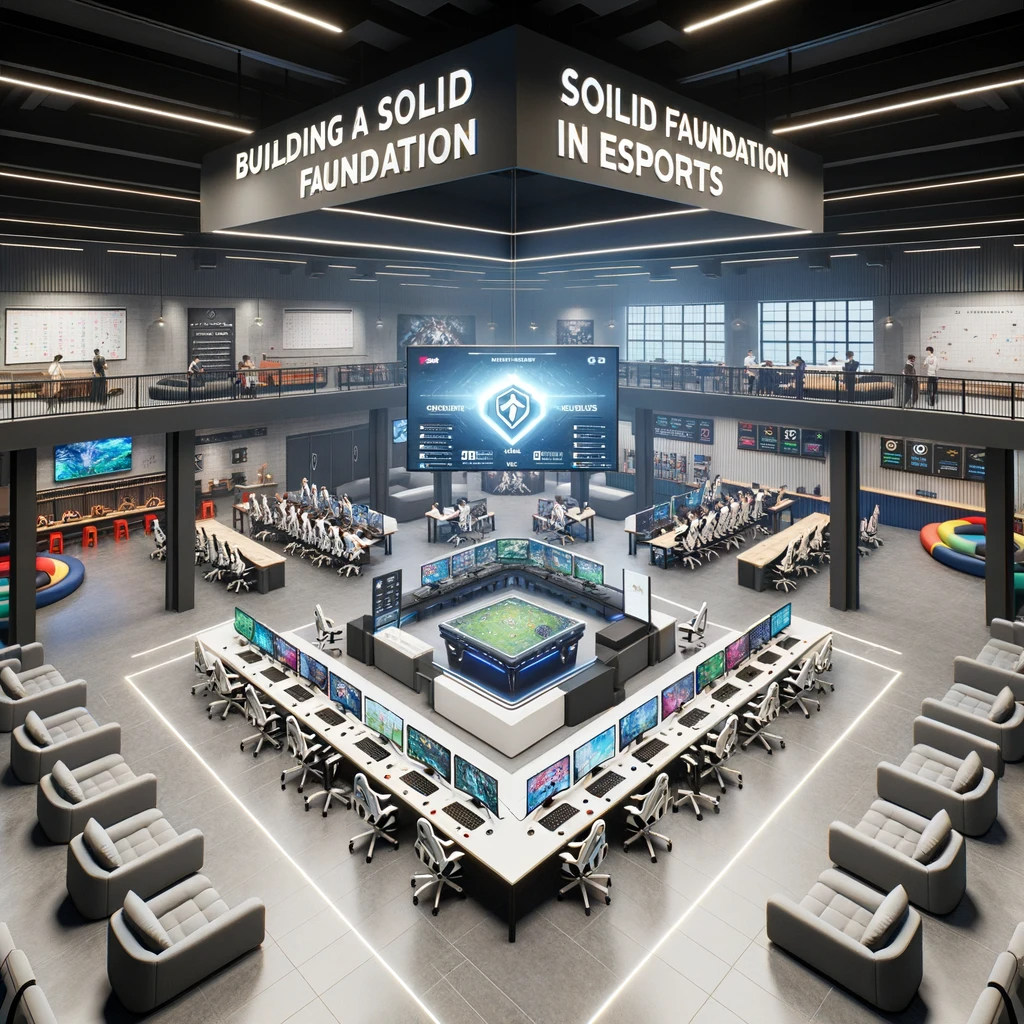
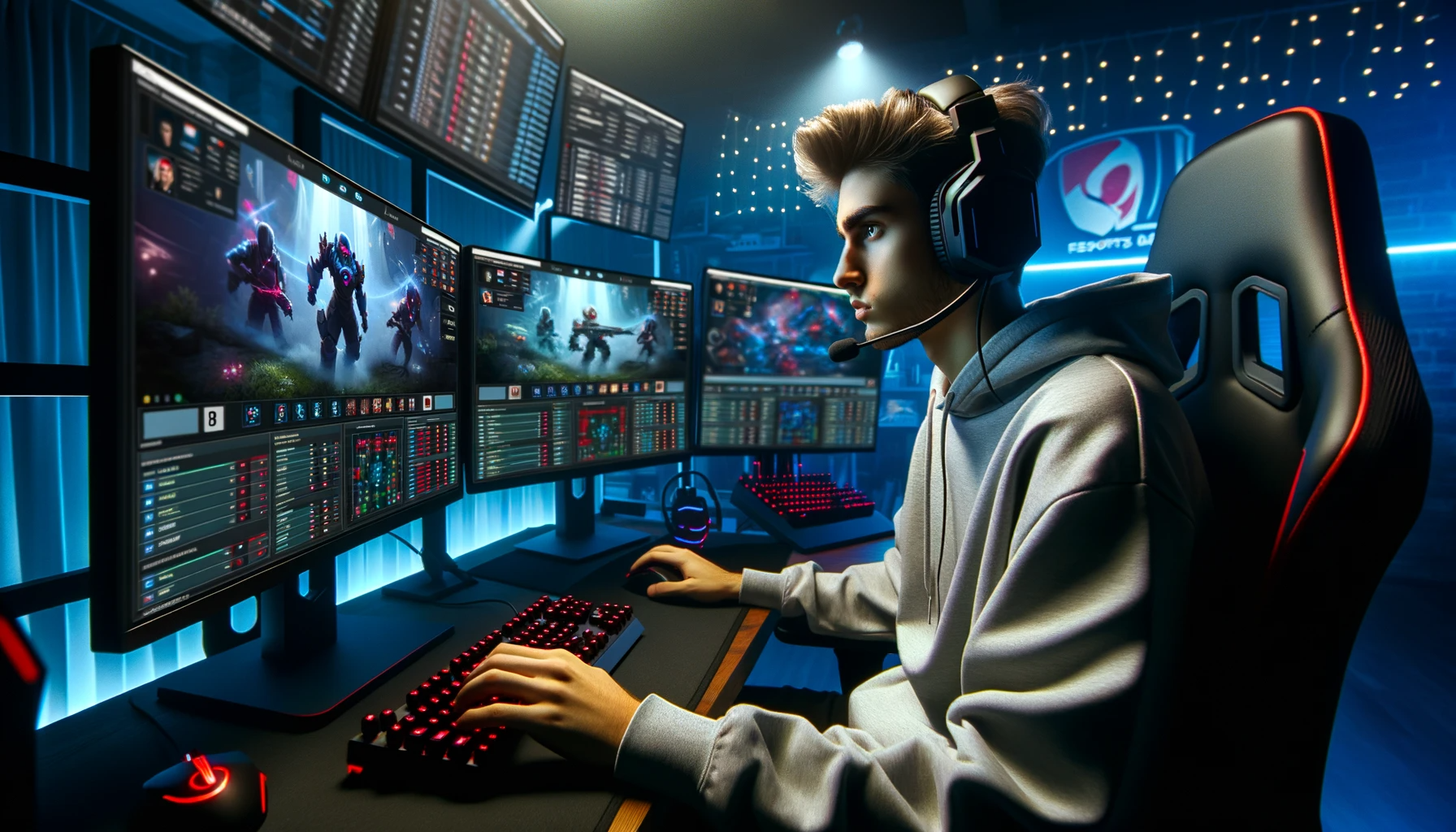
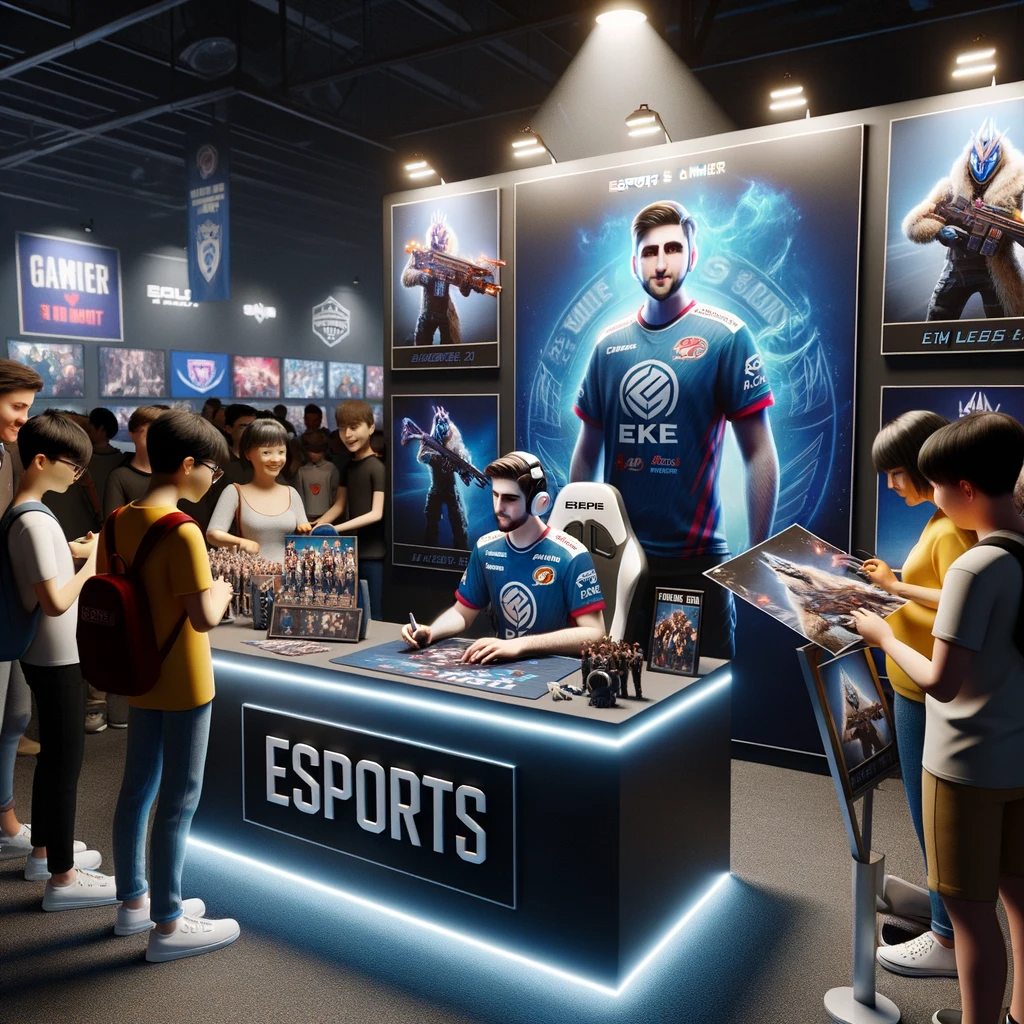



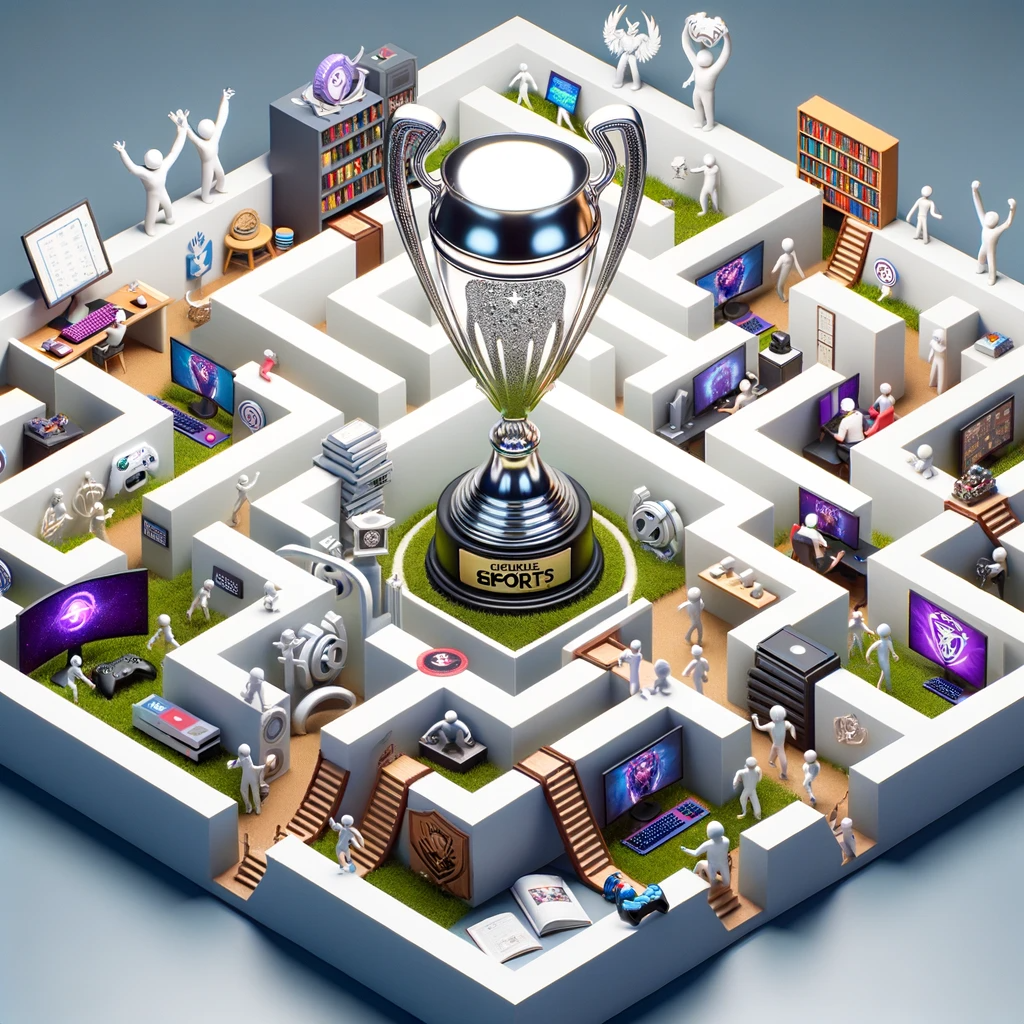

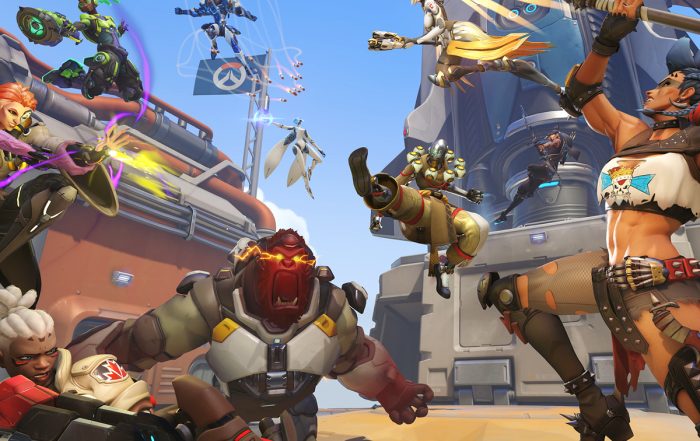
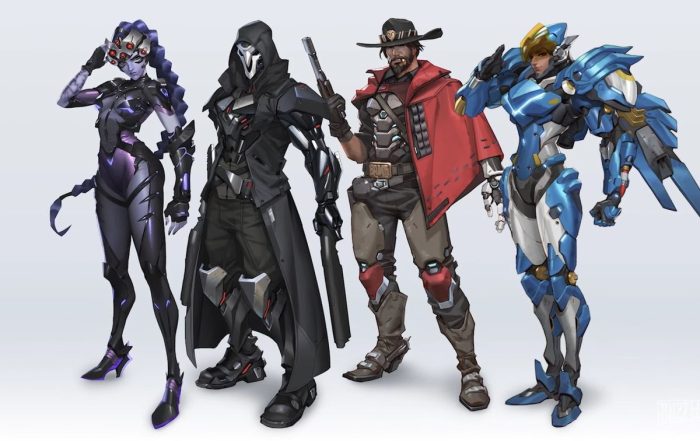
Get Social